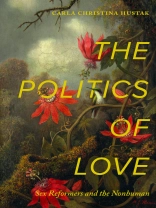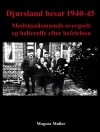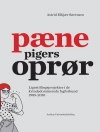The Politics of Love explores the entanglement of emotions, social movements, and science in reconfiguring human and nonhuman relations. As Darwin’s evolutionary theory informed the development of sexual science and the sex reform movement between the 1890s and the 1920s, sex reformers emerged as a group of diverse and culturally influential professionals—doctors, psychologists, artists, political activists, novelists, and academics—who shared a profound commitment to changing the world by changing the practice of sex. Sex reformers reinvented love as a scientific practice of sex that brought humans and nonhumans into the fold of early-twentieth-century racial, gender, and sexual politics. Carla Christina Hustak illuminates how sex reformers’ insistence that love can shift human and nonhuman relations is more than just a historical narrative—it is a moment in time interconnected with urgent contemporary concerns over the global implications of our emotional relationships to other humans, animals, the earth, and atmospheric and technological forces.
İçerik tablosu
Contents
List of Figures
Acknowledgments
Introduction. Love Stories for the Nonhuman
1 “Becoming-Animal”: Evolving Love in Animal Sex Experiments
2 Eco/ontologies: Love, Sex Reform, and Environmental Sciences
3 Planetary Intimacies: Physics, Occultism, and Nonhumans in Love
4 Reinventing Love as Technologies of Sex and Marital Intimacies
5 Romancing Evolutionary Biology: Darwinism in the Metropolis
Conclusion. Genealogies of Love: Darwinian Romances in Reproductive Sciences
Notes
Bibliography
Index
Yazar hakkında
Carla Christina Hustak is an independent historian of gender and sexuality in late-nineteenth- and early-twentieth-century Britain and the United States.












